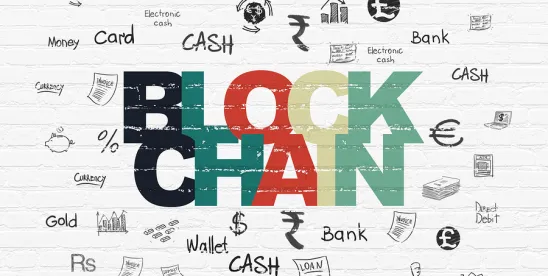What Happened: On October 15, 2021, the Department of Treasury’s Office of Foreign Assets Control (“OFAC”) issued “Sanctions Compliance Guidance for the Virtual Currency Industry” and related updated FAQs.
The Bottom Line: OFAC is continuing to highlight that its regulatory authority covers virtual currencies and that entities dealing with such products must familiarize themselves with, and actively monitor, the development of US sanctions to avoid violations of OFAC’s regulations.
The Full Story: On October 15, 2021, OFAC issued the “Sanctions Compliance Guidance for the Virtual Currency Industry” (“Guidance”) and related updated FAQs. In an effort to help the public understand the Guidance, the US Department of Treasury updated the definitions for “digital currency,” “digital currency wallet,” “digital currency address,” and “virtual currency” for purposes of the OFAC sanctions program in one of the updated FAQs. While the Guidance mostly summarizes and restates existing obligations with respect to US sanctions, some are seeing this as a clear statement by OFAC that it intends to press forward with heightened regulation and enforcement scrutiny concerning virtual currencies.
The Guidance is designed to alert “the virtual currency industry, including technology companies, exchangers, administrators, miners, wallet providers, and users [because they] play a pivotal role in preventing sanctioned persons from exploiting virtual currencies to evade sanctions and undermine US foreign policy and national security interests.” Virtual currency companies themselves, as well as others dealing in virtual currencies, are responsible for ensuring they do not engage, directly or indirectly, in transactions prohibited by OFAC. Moreover, US persons are responsible for ensuring they are not interacting or transacting with sanctioned persons or jurisdictions.
In terms of compliance measures, OFAC notes that there is no “one size fits all” solution for mitigating sanctions risks. However, “OFAC strongly encourages a risk-based approach to sanctions compliance because there is no single program or solution suitable to every circumstance or business. An adequate compliance solution for members will depend on a variety of factors, including the type of business involved, its size and sophistication, products and services offered, customers and counterparties, and geographic locations served.” OFAC also suggests creating an appropriate sanctions compliance program and refers to its own resource, “A Framework for OFAC Compliance Commitments,” for information on such programs.
Of note, OFAC mentions that virtual currency companies should implement internal controls using geolocation tools and IP address blocking controls. “OFAC has taken enforcement action against companies in the virtual currency industry that have engaged in prohibited activity because they failed to prevent users in sanctioned jurisdictions from accessing and using their platforms. This was due, in part, to a failure to use the geolocation information in their possession.” Using these tools will allow “virtual companies . . . to identify and prevent IP addresses that originate in sanctioned jurisdictions from accessing their platforms or services to engage in prohibited activity.”
If any US person determines that it has virtual currency in its possession or control that is subject to “blocking” because of OFAC sanctions, the US person is required to “deny all parties access to that virtual currency,” and must report those blocked assets to OFAC within 10 days of blocking the currency. When dealing with blocked virtual currencies, “US persons are not obligated to convert the blocked virtual currency into traditional fiat currency (e.g., US dollars), and are not required to hold such blocked property in an interest-bearing account.” In terms of activities that may be deemed a violation, OFAC reminds the virtual currency industry that it incentivizes those who believe they have violated OFAC regulations to disclose such violations voluntarily to mitigate enforcement actions.
Those dealing in virtual currency should make it a priority to comply with OFAC regulations, implement controls internally to mitigate the risks, and stay up to date on the most recent publications by the US Treasury.



 />i
/>i

